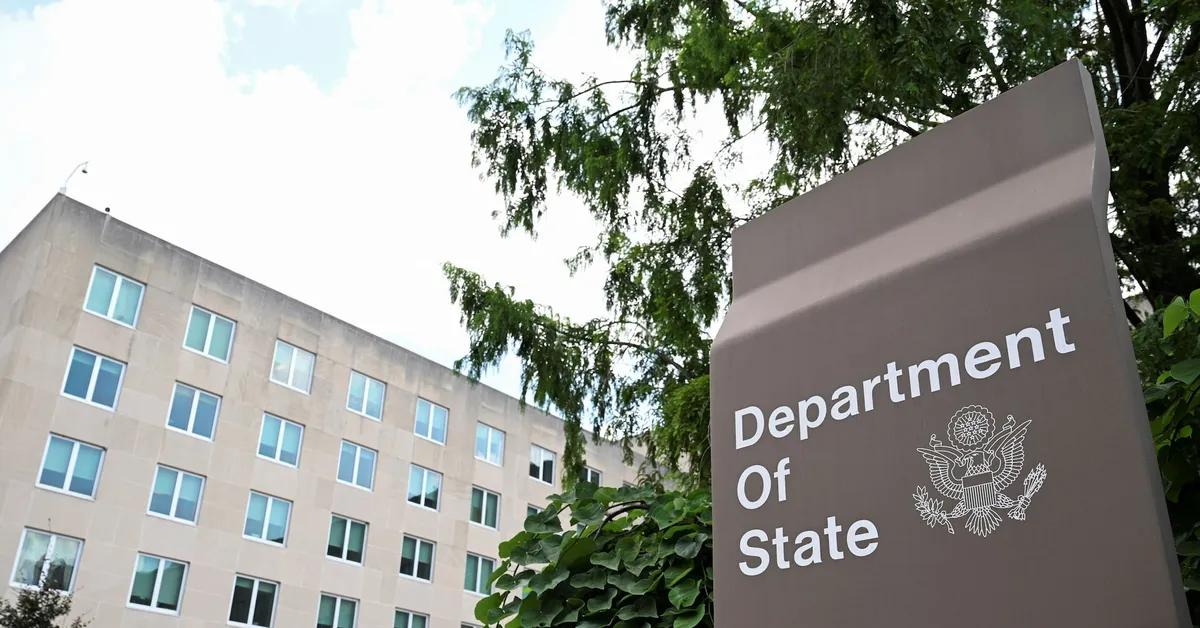
On July 11, 2023, the U.S. State Department began laying off more than 1,350 employees in a significant move that critics argue could jeopardize the nation's ability to defend and promote its interests globally. This decision comes as part of President Donald Trump's extensive overhaul of the U.S. diplomatic corps, which is being closely scrutinized amidst rising geopolitical tensions.
The layoffs affect a total of 1,107 civil service and 246 foreign service officers based in the United States. This comes during a critical time for Washington, as it faces multiple international crises, including Russia's war in Ukraine, the prolonged conflict in Gaza, and escalating tensions between Israel and Iran. According to an internal notice from the State Department, the job cuts are aimed at streamlining domestic operations to concentrate on essential diplomatic priorities.
The planned reduction in workforce will total nearly 3,000 employees, including those opting for voluntary departures, out of approximately 18,000 staff members based in the U.S. The restructuring is the first phase in Trump's strategy to align U.S. foreign policy with his America First agenda. Critics, including former diplomats, warn that cutting foreign service officers could hinder America's ability to respond to challenges posed by adversaries such as China and Russia.
Democratic Senator Tim Kaine of Virginia condemned the layoffs, stating, "This is one of the most ridiculous decisions that could possibly be made at a time when China is increasing its diplomatic footprint around the world." He emphasized that the decision sends a troubling message at a time when the Middle East is facing multiple crises.
In a poignant display, dozens of State Department employees gathered in the agency’s headquarters, holding an impromptu clap-out for their dismissed colleagues. Many were visibly emotional, carrying their belongings in boxes and bidding farewell to friends. Outside the building, supporters cheered and held banners that read, "Thank you America’s diplomats," underscoring the camaraderie and solidarity among staff.
Inside the State Department, designated offices were set up for laid-off employees to return agency property such as badges, laptops, and phones. These offices were clearly marked with signs reading "Transition Day Out Processing." A separation checklist provided to affected employees detailed the steps to be taken prior to their termination, including a warning that access to the building and email accounts would be revoked at 5 p.m. EDT on the day of the layoffs.
In February, President Trump directed Secretary of State Marco Rubio to restructure the foreign service to ensure the implementation of the administration's foreign policy. This reorganization is part of Trump's broader initiative to reduce what he regards as a bloated federal bureaucracy. Notably, the administration dismantled the U.S. Agency for International Development, which had been responsible for distributing billions in international aid, folding it under the State Department's jurisdiction.
The American Foreign Service Association, a professional group representing State Department employees, expressed concern that the layoffs send a negative signal to both allies and adversaries. The association stated, "As allies look to the U.S. for reassurance and rivals test for weakness, the administration has chosen to sideline the very professionals best equipped to navigate this moment." This sentiment highlights the potential risks associated with a diminished diplomatic presence as nations like China continue to extend their influence globally.
While the reorganization was initially expected to conclude by July 1, it faced delays due to ongoing litigation. The U.S. Supreme Court recently cleared the way for the Trump administration to pursue these job cuts, prompting the White House Counsel's Office and the Office of Personnel Management to coordinate with federal agencies to ensure compliance with legal standards.
This sweeping restructuring of the State Department raises significant questions about the future of U.S. diplomacy at a time when global challenges are mounting. The administration's approach, characterized by a reduction in personnel, could have lasting implications for America's role on the world stage.